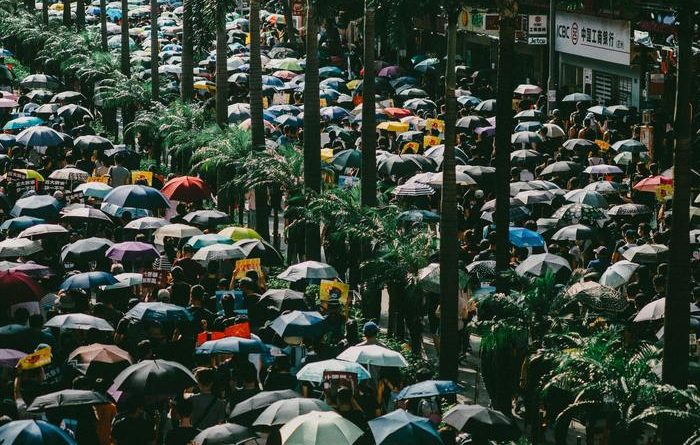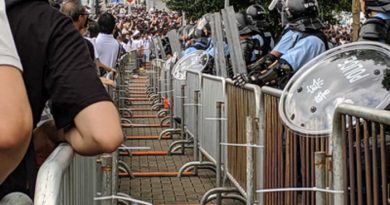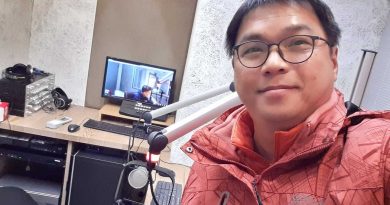Interview with Mr. Nam Boo Won, General Secretary of Asia Pacific Alliance of YMCAs (APAY)
1. The National Security Law (NSL) of Hong Kong was passed by the National People’s Congress on May 28. When will it take effect? And do you think that Hong Kong Legislative Council (LegCo) will pass it without difficulty?
According to reports by Chinese and Hong Kong media, the Hong Kong NSL is expected to cause much controversy as it filters out the legal system that already exists in Hong Kong, namely, the Basic Law. In other words, the Chinese government’s logic is that the NSL does not require the discussion and adoption of the Legislative Council of Hong Kong. Opponents of this interpretation express deep concern that if the NSL holds a higher legal status than Hong Kong’s Basic Law, it would seriously undermine the principles of “One Country, Two Systems.”
According to reports, the NPC Standing Committee has already initiated a detailed bill following the decision of the CPC. Here in Hong Kong, the general prospect seems to be of concern that the provision of the NSL will be submitted and passed in mainland China before the end of June or the election of LegCo in September at the latest. As mentioned earlier, once the provision of the NSL is passed in China, it will be stipulated in the Basic Law as Annex III to the Hong Kong Basic Law.
2. What is the specific core of the NSL that affects the values of democracy, human rights, etc. in Hong Kong?
Details of the NSL have yet to be made public, and the outline revealed by the NPC is to prevent, deter, stop and punish Hong Kong’s independence, national subversion, terrorism, and interference from foreign or external forces. And under the NSL, the head of Hong Kong is allowed to provide national security education for Hong Kong citizens and establish a Chinese intelligence agency in Hong Kong. The Hong Kong Bar Association questioned the specifics of the NSL and the ambiguity of its scope, especially whether the NSL would respect the “International Covenant on Civil and Political Rights” ratified by Hong Kong.
The so-called democratic camp, which has fought for Hong Kong’s freedom, human rights and democracy, fears that the NSL will soon restrict the civil rights that Hong Kong citizens have enjoyed so far. In particular, they are concerned that various groups who cooperate with foreign groups, especially the so-called “liberal democratic camp,” will shrink.
As you know, Hong Kong has provided a friendly environment for international NGOs, especially regional NGOs covering Asia. However, with the NSL in effect, there are concerns that there will be various restrictions on the activities of NGOs in Hong Kong, including human rights protection advocacy activities, and international funding.
3. The COVID-19 situation is serious, and there will be a lot of restrictions on Hong Kong citizens’ demonstrations. There are already quite a few democratic figures in custody. What is the present situation?
Compared to other countries, Hong Kong government has managed the COVID-19 pandemic relatively well. Recently, no local infections have been reported for some time, but three days ago, one and four on June 1 have been reported. Under these circumstances, the government continues to maintain a policy of “keeping social distance” – measures to limit meetings to eight people.
About a month ago, seven to eight democratic figures, including some members of the Democratic Party, were arrested and detained, reportedly organizing or participating in a series of protests last year. There have also been recent protests against China’s move to enact the NSL, some of which have been accused of violating the policy of keeping social distance, and hundreds of protesters have been arrested on the spot on charges of illegal demonstrations. And I understand that the street rally, which remembers and honors the 31st anniversary of the Tiananmen Square massacre on June 4 at Victoria Park in Hong Kong every year, was also banned for the first time in 30 years by the police on the pretext of mass infection due to COVID-19. In this situation, we will have to wait and see how Hong Kong’s pan-democratic camp, including young protest groups, will commemorate the 31st anniversary of the Tiananmen Square massacre.
4. How do you view the U.S.-China relationship in the future? What is the role of Korean civil society?
As you well know, shortly after China declared that it would enact the National Security Law in Hong Kong by the NPC, the Trump administration declared that Hong Kong no longer has autonomy from China, vowing to minimize the preferential measures given to Hong Kong without exception. No details of the cancellation have been revealed yet, but one thing that stands out is that it would sanction government officials who directly or indirectly damaged Hong Kong’s autonomy. And judging from President Trump’s “America First Policy” and similar moves, I think the focus of Hong Kong’s sanctions will be on how to protect America’s national interests, especially its investment and financial business, rather than protecting Hong Kong’s universal values of human rights, democracy, and rule of law. In addition, President Trump is expected to highlight the issue of China’s enactment of the NSL as an international relations campaign issue in the presidential election later this year.
In addition to the trade war between the U.S. and China, many analysts are concerned that with the enactment of the NSL a new era of the Cold War will begin between the U.S. and China. I think this means a new level of systemic structure confrontation that encompasses not only science and technology, military, security, ideology, but also the economic areas such as trade and investment. More detailed observation and analysis will be needed, but we are concerned that the solidification of the new Cold War system between the U.S. and China will negatively affect not only neighboring countries such as Korea, Taiwan, and Japan, but also the entire world. It is a great challenge for Korea to pursue its national interests and contribute to building a peaceful, equal and sustainable world while it maintains a balanced diplomacy between the US and China.
Finally, I would say that that Korea’s civil society, viewed from outside Korea, is the most vibrant and active as it has driven the democratization in Korea, going through difficult times of oppression and fear, for which I am proud.
Unlike the government (state), the vision of civil society must go beyond national interest. I think we, the civil society community, should stick to our original mandate of strengthening and spreading values. Concerning the NSL in Hong Kong, Korean civil society needs to cooperate in solidarity with various civil society groups in Northeast Asia to ensure that civil liberty, human rights, justice, etc. should not be undermined or restricted by the state. Thank you.




